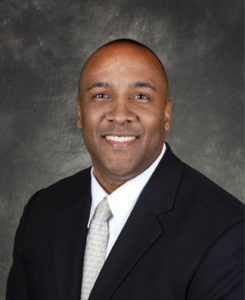 Kurt Wilson was awarded the second Harvard Leadership Program scholarship of 2017-18. The “Leadership Decision Making: Optimizing Organizational Performance” program at Harvard’s Kennedy School of Education focuses on designing environments that help reduce bias and inaccuracy in order to make the overall team and organization smarter. Grounded in theories and evidence from psychology, behavioral economics, and neuroscience, the program teaches leaders to answer tough questions, improve the accuracy of estimates, and more effectively structure negotiations.
Kurt Wilson was awarded the second Harvard Leadership Program scholarship of 2017-18. The “Leadership Decision Making: Optimizing Organizational Performance” program at Harvard’s Kennedy School of Education focuses on designing environments that help reduce bias and inaccuracy in order to make the overall team and organization smarter. Grounded in theories and evidence from psychology, behavioral economics, and neuroscience, the program teaches leaders to answer tough questions, improve the accuracy of estimates, and more effectively structure negotiations.
Below are Kurt’s thoughts on the lessons he learned from the program:
The reputation of the Harvard Kennedy School is unparalleled because of the world class caliber of both the professors and the participants within various programs. The one-week Leadership Decision-Making (LDM) program was no exception. Although shorter than the Senior Executives in State and Local Government that so many California City Management Foundation members have attended in the past, the LDM program packed more than enough information into that week to make it a life changing experience for any CCMF member.
The high value of the program is commensurate with the cost. Unfortunately, the high cost is a barrier for many California managers who would otherwise benefit personally and professionally from the program. Fortunately, thanks to the generosity of CCMF, members have the ability to apply for a scholarship that makes attendance possible and adds value to the organizations we serve.
This program required only minimal advance preparation, so it didn’t interfere with my regular duties. This was possible because of quality of the instruction and engaging delivery from the LDM professors. I’ve spent quite a bit of recent classroom time for various things and the delivery was far superior to other trainings. Even people who have been out of the classroom for a while were able to have a low stress learning experience that made learning fun.
As managers, we’re entrusted with making decisions that affect other people in important ways. We often focus on the weight of that responsibility in terms of acting ethically but we miss the opportunity to look at the decision in terms of whether or not we have an objective or defensible process to approach those decisions. For me, over the years I felt like experience informed my instincts and gave me the tools to make good decisions. Even if that’s correct, though, experience isn’t a teachable or objective standard that other people can rely on. That’s particularly important because we serve in a profession where we are using succession planning to quickly prepare a new generation of managers. Rather than waiting for future managers to gain the experience to make the right decisions, the class raised the question of whether or not education can do the same thing.
The LDM program used theories from psychology, neuroscience, and economics to break down the decision-making process to its component parts. We were able to use the resources of our professors and colleagues (more international participants than Americans) to apply these theories and find better solutions to current issues in our own organizations. Even when the process didn’t change the decision, it allowed us to understand how and why we made those decisions. This lets us share the information with the people who will lead our cities in the future. It also provides a basis for helping to defend our controversial decisions when our critics think we got it wrong. I was impressed that the concept I chalked up to experience could be replicated and understood by someone who has the training but lacks the experience. It sets the stage for each generation of managers to be more effective and better prepared than the last one.
The concept of implicit bias has been popular lately within the law enforcement community. The LDM course taught us how prevalent bias is in our own decision-making. This is particularly true in certain types of decisions as we learned the differences between System 1 and System 2 thinking. We were taught how to recognize and mitigate these biases through environmental design in order to make better decisions.
I highly recommend taking the time for professional and personal development and believe this program helps with both. The scholarship makes this program reachable for virtually every manager and the investment will pay dividends to you and your organization well into the future.

